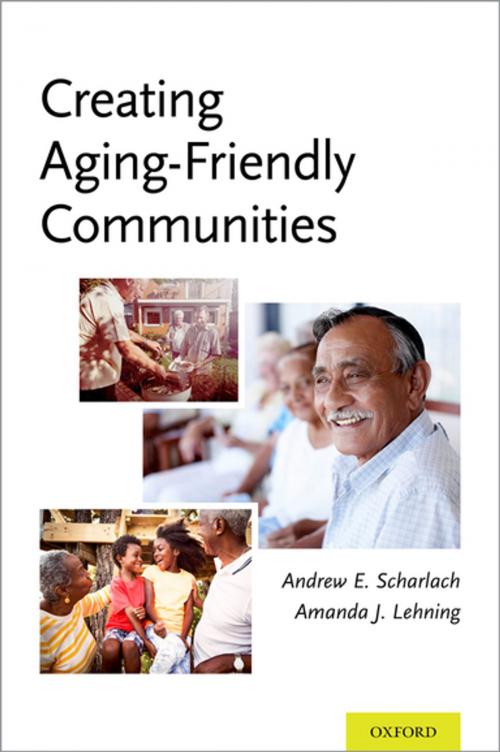Creating Aging-Friendly Communities
Nonfiction, Social & Cultural Studies, Social Science, Social Work| Author: | Andrew Scharlach, Amanda Lehning | ISBN: | 9780199379606 |
| Publisher: | Oxford University Press | Publication: | November 16, 2015 |
| Imprint: | Oxford University Press | Language: | English |
| Author: | Andrew Scharlach, Amanda Lehning |
| ISBN: | 9780199379606 |
| Publisher: | Oxford University Press |
| Publication: | November 16, 2015 |
| Imprint: | Oxford University Press |
| Language: | English |
Creating Aging-Friendly Communities (CAFC) examines the need to redesign America's communities to respond to the realities of our rapidly aging society. The text focuses on the interface between individuals and their environments, and the ways in which communities can enhance individual and community well-being. What differentiates CAFC from other books is its breadth of focus, its comprehensive and evidence-based consideration of key concepts, its inclusion of social as well as physical infrastructure characteristics, and its intensive examination of models of community change for fostering aging-friendliness. It presents a conceptually and empirically-based model of aging-friendliness, identifies environmental modifications that could enhance individual and community well-being, outlines a typology of community change approaches, and considers the potential efficacy of those approaches. This book identifies practical implications for policies, programs, and knowledge development designed to help communities become more aging-friendly.
Creating Aging-Friendly Communities (CAFC) examines the need to redesign America's communities to respond to the realities of our rapidly aging society. The text focuses on the interface between individuals and their environments, and the ways in which communities can enhance individual and community well-being. What differentiates CAFC from other books is its breadth of focus, its comprehensive and evidence-based consideration of key concepts, its inclusion of social as well as physical infrastructure characteristics, and its intensive examination of models of community change for fostering aging-friendliness. It presents a conceptually and empirically-based model of aging-friendliness, identifies environmental modifications that could enhance individual and community well-being, outlines a typology of community change approaches, and considers the potential efficacy of those approaches. This book identifies practical implications for policies, programs, and knowledge development designed to help communities become more aging-friendly.















